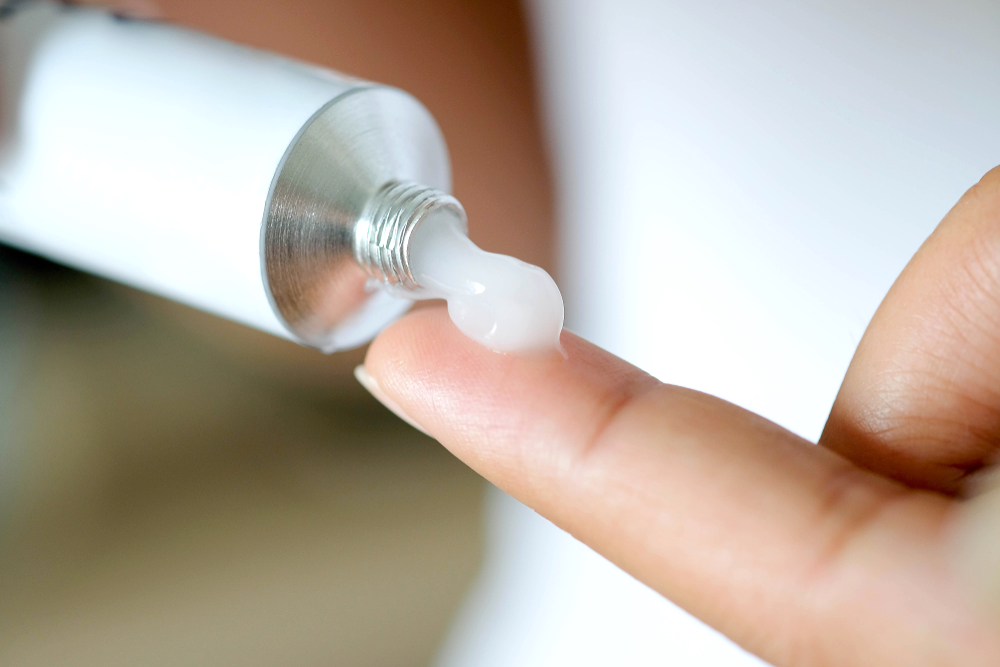
Treatment for eczema depends on the symptoms and factors which trigger the symptoms. Managing eczema/atopic dermatitis generally involves:

Several OTC emollients which may or may not contain steroid (cortisone) are available. Emollients provide a layer of fat over the skin surface which helps to reduce water loss and moisturize the skin, as well as heal the skin from within.
Greasy emollients work better on dry skin. Emollients with more creamy textures are ideal for red, inflamed skin. Avoid emollients containing fragrances and preservatives as these may act as possible triggers.
Apply the emollient 2-3 times daily or as soon as your skin gets dry. Apply more frequently in dry climate or if using air conditioning. Apply before and after swimming or bathing when the skin is still moist. Ensure you use adequate quantities of emollients; this is roughly 100-200g/week in children and 200-300 g/week in adults.
Your doctor may prescribe topical corticosteroids (TCS) and topical calcineurin inhibitors (TCI) for your atopic dermatitis. Both medications reduce the body’s immune response to allergens and bring down inflammation.
Systemic medicines which alter the immune response are prescribed to patients with moderate to severe eczema that does not respond to topical therapy. These include corticosteroids, cyclosporine A, methotrexate, azathioprine and mycophenolate mofetil.
These include:
Consult your dermatologist for more information on treatment options for eczema/atopic dermatitis.
Shop at Watsons for eczema/atopic dermatitis treatments and other essential healthcare needs.
RECOMMENDED PRODUCTS
Reference: https://www.eczema-care.asia/en-gb. Accessed 18 April 2022
Overweight and obesity are defined as abnormal or excessive fat accumulation that presents a risk to health. A body mass […]
Around 27 million Filipino adults are overweight or obese, according to the latest National Nutrition Survey conducted by the Food […]
Advances in scientific and technological knowledge have provided unprecedented advantages in terms of immeasurable convenience in our daily living, lightning-fast […]